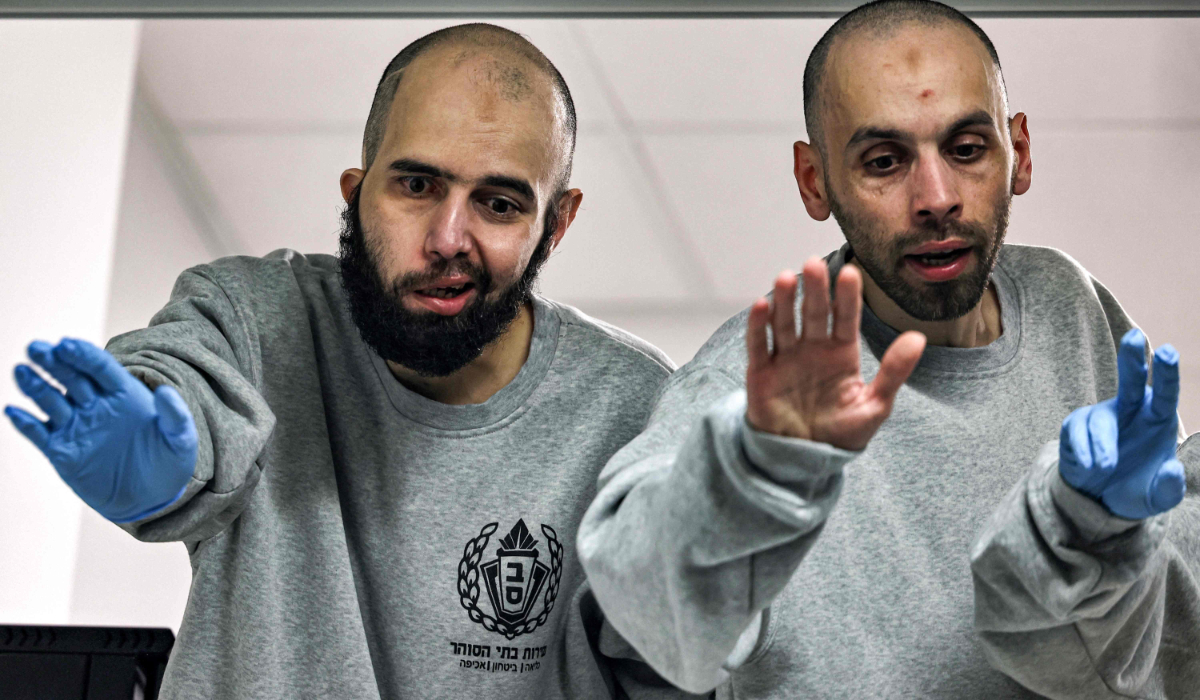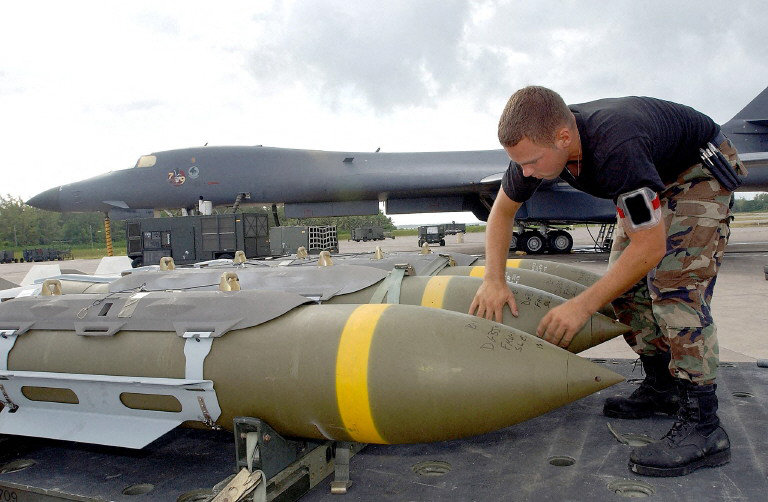JERUSALEM: Grieving and angry Israelis surged into the streets Sunday night after six more hostages were found dead in Gaza, chanting “Now! Now!” as they demanded that Prime Minister Benjamin Netanyahu reach a ceasefire with Hamas to bring the remaining captives home.
Israel’s largest trade union, the Histadrut, also pressured the government by calling a general strike for Monday — the first since the Oct. 7 Hamas attack that started the war. The strike aims to shut down or disrupt major sectors of the economy, including banking, health care and the country’s main airport.
Tens of thousands of Israelis were expected to protest. Many blame Netanyahu for failing to reach a ceasefire during nearly 11 months of war. Negotiations have dragged on for months. Israel’s army has acknowledged the difficulty of rescuing dozens of remaining hostages and said a deal is the only way to bring a large-scale return.
“I’m crying the cry of humanity,” said one protester who gave his name as Amos as thousands, some of them weeping, gathered outside Netanyahu’s office in Jerusalem.
The military said all six hostages were killed shortly before Israeli forces arrived. Netanyahu blamed the Hamas militant group for the stalled negotiations, saying “whoever murders hostages doesn’t want a deal.”
Militants seized Israeli-American Hersh Goldberg-Polin, 23, and four other hostages at a music festival in southern Israel. The native of Berkeley, California, lost part of his left arm to a grenade in the attack. In April, a Hamas-issued video showed him alive, sparking new protests in Israel.
The army identified the other dead hostages as Ori Danino, 25; Eden Yerushalmi, 24; Almog Sarusi, 27; and Alexander Lobanov, 33; also taken from the festival. The sixth, Carmel Gat, 40, was abducted from the nearby farming community of Be’eri.
The army said the bodies were recovered from a tunnel in the southern Gaza city of Rafah, around a kilometer (half a mile) from where another hostage was rescued alive last week.
Lt. Col. Nadav Shoshani, a military spokesperson, said Israeli forces found the bodies several dozen meters (yards) underground as “ongoing combat” was underway, but that there was no firefight in the tunnel itself. He said there was no doubt Hamas had killed them.
Hamas has offered to release the hostages in return for an end to the war, the withdrawal of Israeli forces from Gaza and the release of a large number of Palestinian prisoners, including high-profile militants.
Izzat Al-Rishq, a senior Hamas official, said the hostages would still be alive if Israel had accepted a US-backed ceasefire proposal that Hamas said it had agreed to in July.
Funerals began for the hostages, with more outrage. Sarusi’s body was wrapped in an Israeli flag. “You were abandoned on and on, daily, hour after hour, 331 days,” his mother, Nira, said. “You and so many beautiful and pure souls. Enough. No more.”
Hostages’ families urge a ‘complete halt of the country’
Netanyahu has vowed to continue the war until Hamas is destroyed.
Critics have accused him of putting his personal interests over those of the hostages. The war’s end likely will lead to an investigation into his government’s failures in the Oct. 7 attacks, the government’s collapse and early elections.
“I think this is an earthquake. This isn’t just one more step in the war,” said Nomi Bar-Yaacov, associate fellow in the International Security Program at Chatham House, shortly before Sunday’s protests began.
Israel’s Channel 12 reported that Netanyahu got into a shouting match at a security Cabinet meeting Thursday with Defense Minister Yoav Gallant, who accused him of prioritizing control of a strategic corridor along the Gaza-Egypt border — a major sticking point in the talks — over the lives of the hostages.
An Israeli official confirmed the report and said three of the hostages — Goldberg-Polin, Yerushalmi and Gat — had been slated to be released in the first phase of a ceasefire proposal discussed in July. The official was not authorized to brief media about the negotiations and spoke on condition of anonymity.
“In the name of the state of Israel, I hold their families close to my heart and ask forgiveness,” Gallant said Sunday.
A forum of hostage families has demanded a “complete halt of the country” to push for a ceasefire and hostage release. “Were it not for the delays, sabotage and excuses, those whose deaths we learned about this morning would likely still be alive,” it said in a statement.
Even a mass outpouring of anger would not immediately threaten Netanyahu or his far right government. He still controls a majority in parliament. But he has caved in to public pressure before. Mass protests led him to cancel the dismissal of his defense minister last year, and a general strike last year helped lead to a delay in his controversial judicial overhaul.
A family’s high-profile campaign
Goldberg-Polin’s parents, US-born immigrants to Israel, became perhaps the most high-profile relatives of hostages on the international stage. They met with US President Joe Biden and Pope Francis and on Aug. 21, they addressed the Democratic National Convention — after sustained applause and chants of “bring him home.”
His mother, Rachel, who bowed her head during the ovation and touched her chest, said “Hersh, if you can hear us, we love you, stay strong, survive.”
Biden on Sunday said he was “devastated and outraged.” The White House said he spoke with Goldberg-Polin’s parents and offered condolences.
Some 250 hostages were taken on Oct. 7. Israel now believes 101 remain in captivity, including 35 who are thought to be dead. More than 100 were freed during a ceasefire in November in exchange for the release of Palestinians imprisoned by Israel. Eight have been rescued by Israeli forces. Israeli troops mistakenly killed three Israelis who escaped captivity in December.
Hamas-led militants killed some 1,200 people, mostly civilians, when they stormed into southern Israel on Oct. 7. Israel’s retaliatory offensive in Gaza has killed over 40,000 Palestinians, according to local health officials, who do not say how many were militants. It has displaced the vast majority of Gaza’s 2.3 million people, often multiple times, and plunged the besieged territory into a humanitarian catastrophe.





























